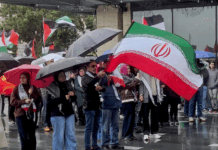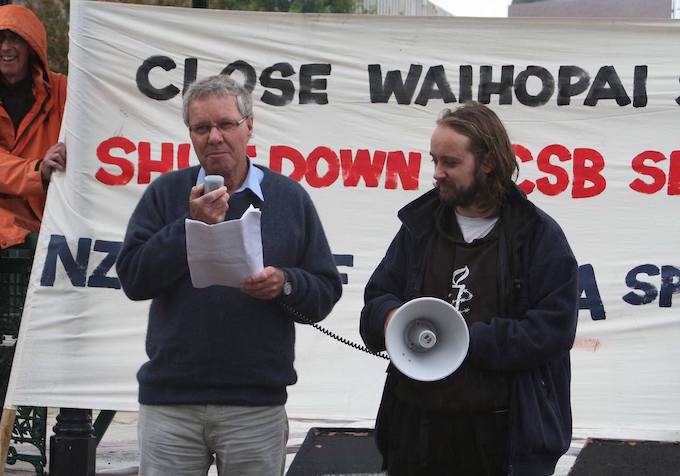
OBITUARY: By Philip Cass of Kaniva Tonga
A New Zealand politician and human rights activist with a strong connection to Tonga’s Democracy movement and other Pacific activism has been farewelled after dying last week aged 80.
Keith Locke served as a former Green MP from 1999 to 2011.
While in Parliament, he was a notable critic of New Zealand’s involvement in the war in Afghanistan and the Terrorism Suppression Act 2002, and advocated for refugee rights.
He was appointed a Member of the NZ Order of Merit for services to human rights advocacy in 2021, received NZ Amnesty International’s Human Rights Defender award in 2012, and the Federation of Islamic Associations of New Zealand’s Harmony Award in 2013.
Locke was often a voice for the Pacific in the New Zealand Parliament.
In 2000, he spoke out on the plight of overstayers who were facing deportation under the National Party government.
As the Green Party’s then immigration spokesperson, he supported calls for a review of the overstayer legislation.
Links to Pohiva
“We are a Polynesian nation, and we increasingly celebrate the Samoan and Tongan part of our national identity,” Locke said at the time.
“How can we claim as our own the Jonah Lomus and Beatrice Faumuinas while we are prepared to toss their relations out of the country at a moment’s notice?”
Locke had links to Tonga through his relationship with Democracy campaigner and later Prime Minister ‘Akilisi Pohiva, who died in 2019.
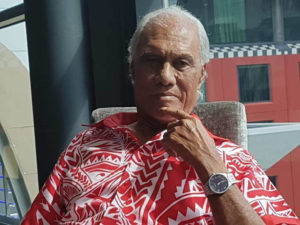
Locke defended Pohiva in 1996 when he was a spokesperson for the Alliance Party. He said he was horrified that Pohiva and two colleagues had been jailed for comments in their pro-democracy newspaper Kele’a.
He criticised the New Zealand government for keeping silent about what he described as a “gross abuse of human rights.”
In 2004, Locke called on the New Zealand government to speak out about what he called the suppression of the press in Tonga.
Locke, who was then the Greens foreign affairs spokesman, said several publications had been denied licences, including an offshoot of the New Zealand-produced Taimi ‘o Tonga newspaper.
Vale #KeithLocke, tireless and fearless campaigner for peace, justice and a sustainable future for a green planet … I’ll also remember him for friendship and commitment to independent truth publishing and OneWorld progressive bookshop. – @DavidRobie, editor, #AsiaPacificReport pic.twitter.com/SC0obJzfOA
— David Robie (@DavidRobie) June 21, 2024
Tribute by Asia Pacific Report editor David Robie.
‘Speak out as Pacific neighbour’
“We owe it to the Tongan people to support them in their hour of need. We should speak out as a Pacific neighbour,” he said.
In 2007, ‘Akilisi was again charged with sedition, along with four other pro-democracy MPs, for allegedly being responsible for the rioting that took place following a mass pro-democracy march in Nuku’alofa.
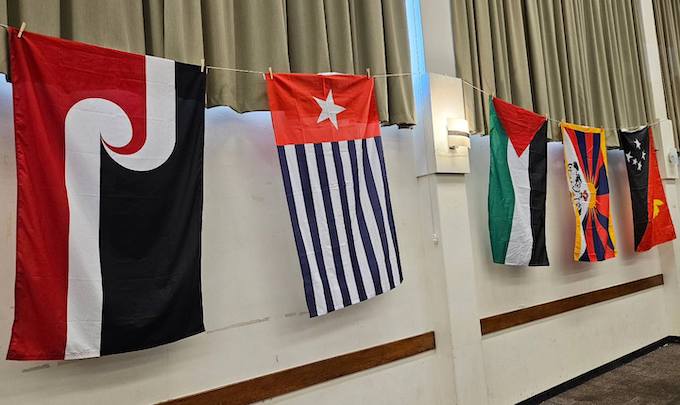
“As the Greens’ foreign affairs spokesperson I went up to Tonga to support ‘Akilisi and his colleagues fight these trumped-up charges. I was shocked to find that the New Zealand government was going along with these sedition charges against five sitting MPs,” Locke said in an interview.
“I was in Tonga not long before the 2010 elections with a cross-party group of New Zealand MPs. We were helping Tongan candidates understand the intricacies of a parliamentary system.
“At the time I remember ‘Akilisi being worried that the block of nine ‘noble’ MPs could frustrate the desires of what were to be 17 directly-elected MPs. And so it turned out.
“Despite winning 12 of the popularly-elected 17 seats in 2010, the pro-democracy MPs were outvoted 14 to 12 when the votes of the nine nobles MPs were put into the equation.
“However, in the two subsequent elections (2014 and 2017) the Democrats predominated and ‘Akilisi took over as Prime Minister. I am not qualified to judge his record on domestic issues, except to say it couldn’t have been an easy job because of the fractious nature of Tongan politics.
“And ‘Akilisi has been in poor health.
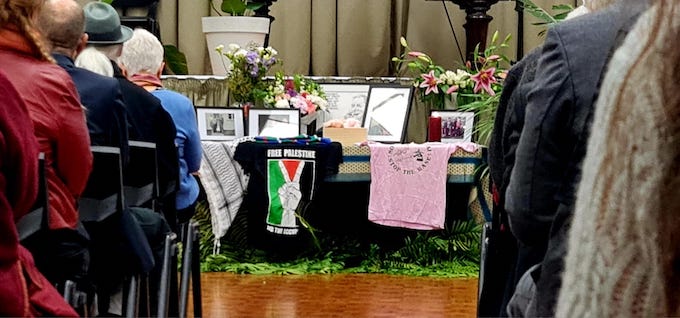
‘Admirable stand’
“As Prime Minister he took an admirable stand on some important international issues, such as climate change. At the Pacific Island Forum he criticised those countries which stayed silent on the plight of the West Papuans.”
Locke said that Tonga may not yet be fully democratic, but that great progress had been made under Pohiva’s “humble and self-sacrificing leadership.”
Keith Locke was also an outspoken advocate for democracy and independence causes in Fiji, Kanaky New Caledonia, Palestine, Philippines, Tahiti, Tibet, Timor-Leste and West Papua and in many other countries.
His remembrance service was held with whānau and supporters at a packed Mount Eden War memorial Hall on Tuesday.
Dr Philip Cass is an editorial adviser for Kaniva Tonga. Republished as a collaboration between KT and Asia Pacific Report.






























